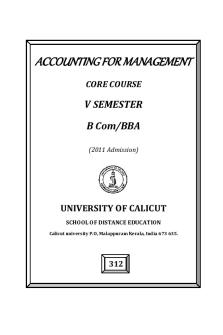Activity 3.2.1 - study material PDF

| Title | Activity 3.2.1 - study material |
|---|---|
| Author | Citlali Haro Franco |
| Course | Introduction to Political Theory |
| Institution | Texas A&M University |
| Pages | 3 |
| File Size | 177.7 KB |
| File Type | |
| Total Downloads | 52 |
| Total Views | 158 |
Summary
study material...
Description
1. Define political culture, describe its utility, and explain the roots of Texas political culture. Political culture is a shared framework of values,beliefs,and habirs of behavior in regards to government and politics in a community. Political culture permits a simplification of the major uniform political ideologies of places. The roots of Texas political culture is a mixture of “Old South” and “Frontier” of shared experiences with Southern states in the realm of slavery, defeat in the civil war, postwar occupation, defial of citizenship rights of African Americans, and influences of living in the frontier. Some contributing factors being the separatiron of some Texaans along race in an Anglo-led political culture and a intense sense of “patiotism”. 2. Explain Daniel Elazar’s causal theory about political cultures in the U.S. Identify its mechanism, directionality, and time ordering. The theory was for why different geographic regions of the US held largely uniform political ideologies. The idea is that ideas express a specific causal mechanism that best describes one elegant and offers a lot of explanatory power while ignoring unexplained aspects of the theory. The conclusions are based on the current time that the theories are made and refer to.
3. List 2 reasons that others might have identified as to why Elazar’s theory was problematic. -
-
Everyone that had a voice was not native (we are all immigrants) and everyone brought their own ideas and ways to the locations they moved. [When people may have been born into the locations they live in actuality] Immigrant groups kept their culture Multiple casualty may be the true effect People groups did not settle within borders
4. Draw and fill in a matrix listing for each of Elazar’s three types of political culture all of the following characteristics: a summary statement, the role of government, qualifications for governing, motivator of individuals, role of corruption, view on political competition, purpose of elections, and the view of the civil-service bureaucracy. Individualistic: -
Material self-interest Marketplace & individual initiative is primary
Moralistic: -
Public interest & positive force Commonwealth Politics revolves around issues Civil-service bureaucracy is favored
Traditionalistics: -
Utilitarian: serve the elite Maintain existential social order and economic hierarchy Politicians have a family obligation to govern Politics is competition between rival factions within elite not class-based parties Civil-service bureaucracy is viewed with suspicion because it interferes with personal relationships
5. Identify the in-type consistency across its characteristics. Most places are hybrid of two and not just one type. 6. Describe Elazar’s classification of Texas and how that can be easily recognized. As individualistic & traditionalistic: -
A long history of one-party rule Liow levels of voter turnout Social and economic conservatism
-
Strong support for private businesses Opposition to big government interference Faith in individual initiatives over government “programs”
7. Identify the general regions of the US where Elazar labeled each of his types. -
NorthEast: Moralistic South East: Traditionalistic NorthWest: Moralistic
8. Characterize how recent state-level data does or does not support Elazar’s theory. For Texas the type does represent Elazar’s theory currently. However, as time goes on we are expected to deviate from the theory with new immigrants moving in and change from rural to urban lifestyles....
Similar Free PDFs

Activity 2.4.1 - study material
- 2 Pages

Activity 3.2.1 - study material
- 3 Pages

ENTR 321 Study Guide
- 7 Pages

Study material financial mgmnt
- 82 Pages

EPSM Study Material
- 119 Pages

MB5-705 Study Material
- 3 Pages

Darshan Study Material OSV
- 228 Pages

Ali Jeremiah - Study material
- 95 Pages

Human Resource Study Material
- 39 Pages

C20 - Study material notes
- 8 Pages

Dynamics-Study-Material
- 57 Pages

MCS-041 STUDY MATERIAL
- 211 Pages

Evidence Study Material
- 36 Pages

Study material- Python
- 107 Pages

Attachment 1-Study Material
- 5 Pages

Study material accounting mngmt
- 123 Pages
Popular Institutions
- Tinajero National High School - Annex
- Politeknik Caltex Riau
- Yokohama City University
- SGT University
- University of Al-Qadisiyah
- Divine Word College of Vigan
- Techniek College Rotterdam
- Universidade de Santiago
- Universiti Teknologi MARA Cawangan Johor Kampus Pasir Gudang
- Poltekkes Kemenkes Yogyakarta
- Baguio City National High School
- Colegio san marcos
- preparatoria uno
- Centro de Bachillerato Tecnológico Industrial y de Servicios No. 107
- Dalian Maritime University
- Quang Trung Secondary School
- Colegio Tecnológico en Informática
- Corporación Regional de Educación Superior
- Grupo CEDVA
- Dar Al Uloom University
- Centro de Estudios Preuniversitarios de la Universidad Nacional de Ingeniería
- 上智大学
- Aakash International School, Nuna Majara
- San Felipe Neri Catholic School
- Kang Chiao International School - New Taipei City
- Misamis Occidental National High School
- Institución Educativa Escuela Normal Juan Ladrilleros
- Kolehiyo ng Pantukan
- Batanes State College
- Instituto Continental
- Sekolah Menengah Kejuruan Kesehatan Kaltara (Tarakan)
- Colegio de La Inmaculada Concepcion - Cebu